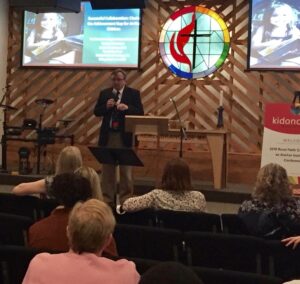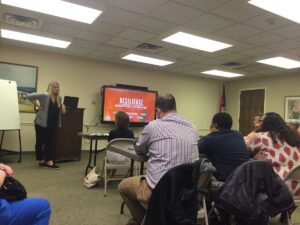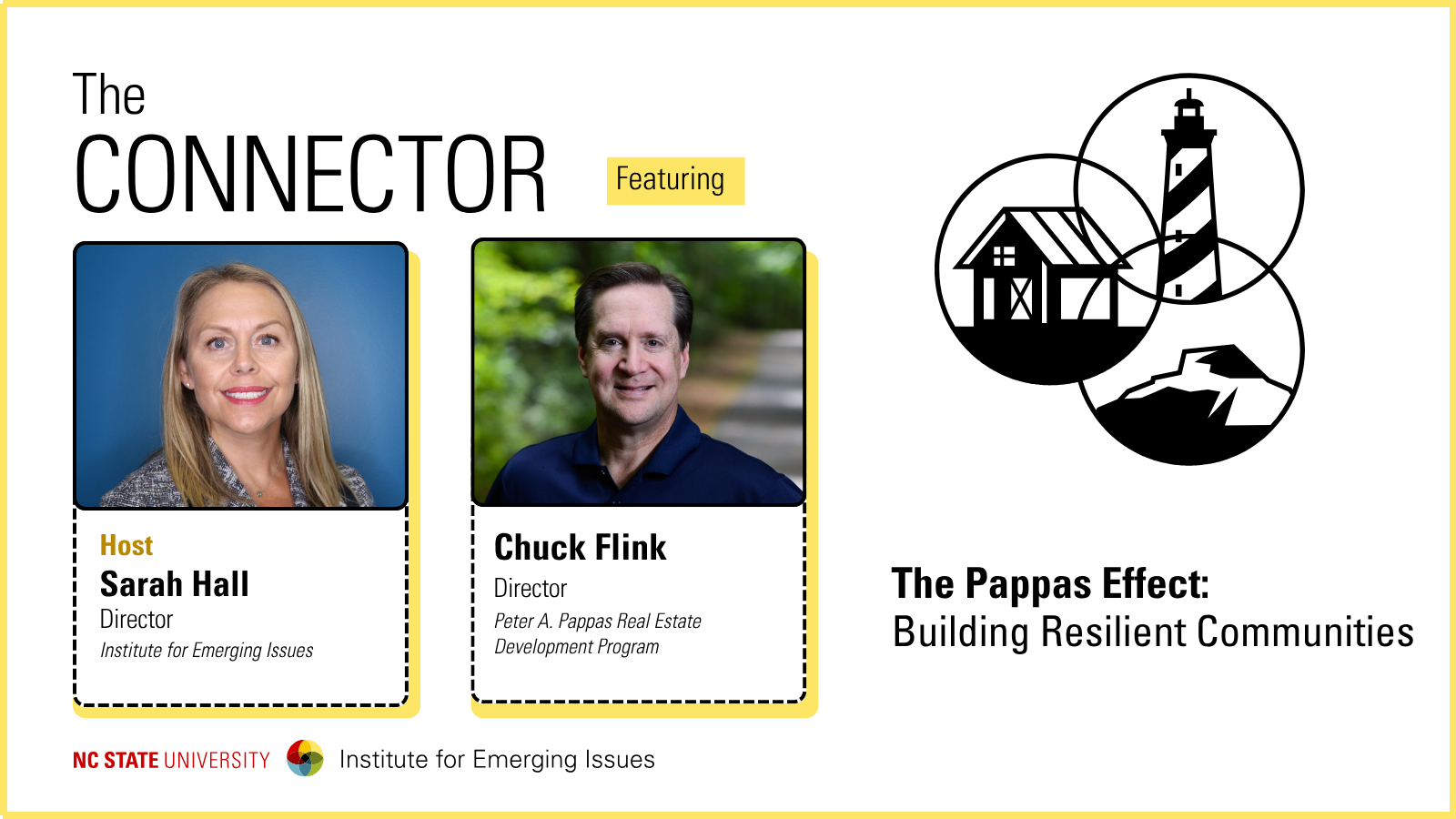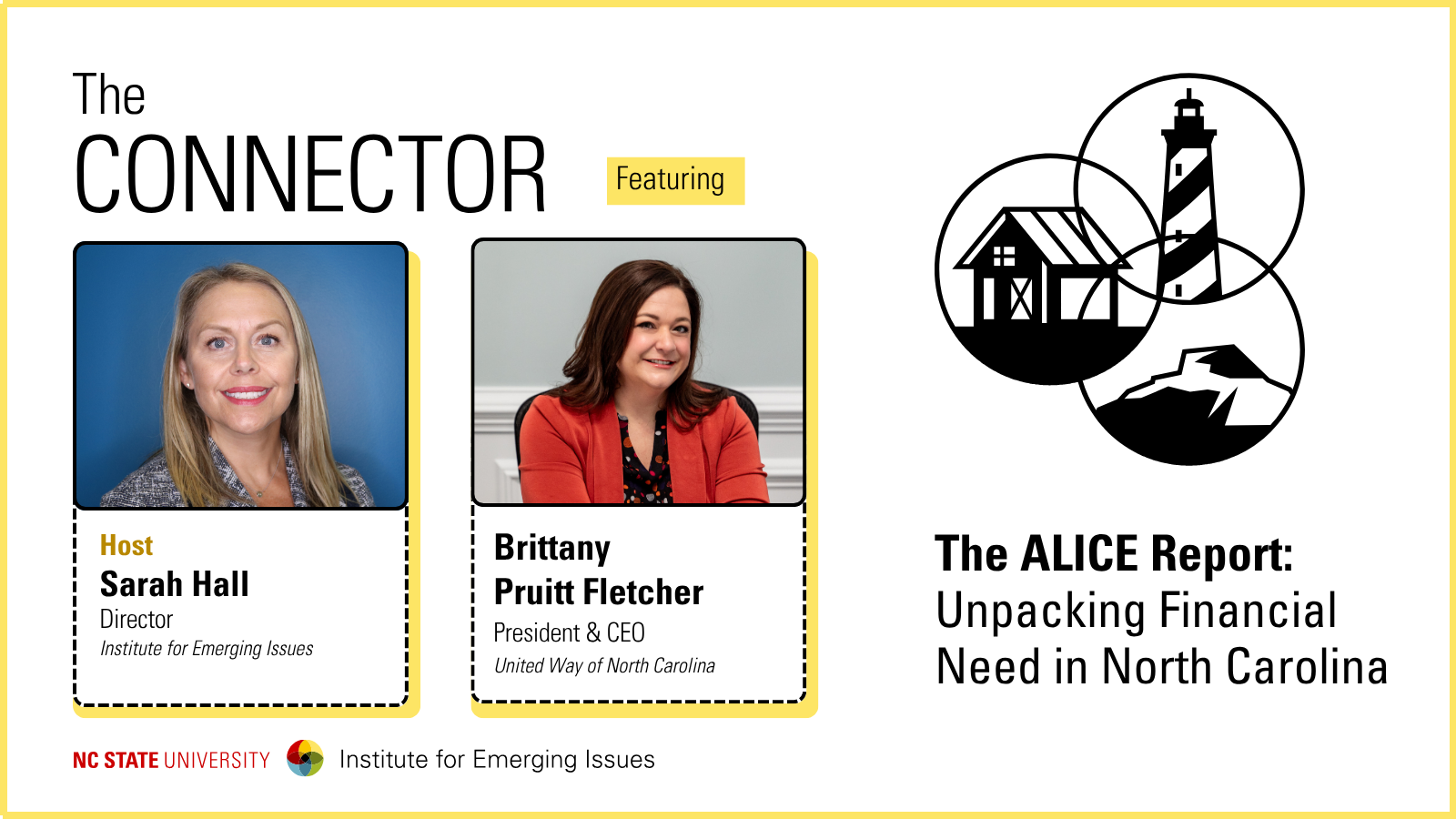Rural Faith Conference Wrap Up

“Being appointed to a place known only as, ‘Two miles from somewhere,’ is daunting, like being anointed as the only one in town who can pray away the haunting.”
The room erupted with a knowing laugh. Rev. Jason Villegas was opening our rural faith leaders dinner with a different type of blessing, an original poem performed magnificently in front of peers who serve all parts, and I mean all parts, of rural North Carolina.

This gathering of friends, strangers, clergy, and laity was the Institute for Emerging Issues’ Rural Faith Communities as Anchor Institutions Conference, hosted April 18-19, in Asheboro. More than 90 faith leaders and community partners gathered to expand on early childhood topics previously discussed at the kidoNomiCs Forum earlier this year. Hailing from western North Carolina to the Outer Banks, faith leaders greeted their partners in ministry and introduced themselves to new faces in our meeting space at First United Methodist Church of Asheboro.
Dr. John Senior, a practical theologian from Wake Forest Divinity, opened up our conference with important questions on how congregations flourish when they know how to meet with their neighbors. Our two-day long sessions each focused on typical areas of early childhood development. For our education sessions, IEI Director Leslie Boney recapped the highlights of the kidoNomiCs Forum and then asked important questions of the group—ones he frequently poses to his First in Future guests—such as, what does connecting North Carolina look like?
Lisa Finaldi, of the First 2,000 Days Initiative, walked faith leaders through a typical presentation that they could give to their communities which gives a brief but vital overview of brain development, literacy milestones, and how to effectively work with families. Faith leaders were able to choose from breakout sessions that focused on evidence-based best practices for school partnerships, summer literacy programs, and training for congregations that work with children. EducationNC helped us finish the day at Four Saints Brewery where faith leaders were able to mingle and learn about Reach NC Voices—free communication tools congregations can use to gain deeper insight into their community efforts.
We started our community sessions on Thursday, learning about “Adultism” with Youth Empowered Solutions. The Rural Center then showed us how to investigate our communities through data. DeWayne Barton opened his session about Asheville’s Community Accountability Plan with spoken word about self perceptions. Jennifer Orr shared how an inter-denominational youth group has formed in Richfield, N.C., after a group of churches came together to outfit an unused building. Our Resource Zoo (the name an ode to the North Carolina Zoo located in Asheboro) allowed faith leaders to meet one-on-one with 19 community partners who offered to help answer questions like:
- How can we use our organization’s space to further support our community to live healthier and prevent chronic conditions? (Faithful Families)
- How can we be genuinely vulnerable with others while learning from and with each other? (NETworX)
- How can we help families with young children develop better literacy skills? (North Carolina Partnerships for Children)
- How can high school students be better prepared for college and careers? (IEI’s Text, Talk Future)

Our health session included the Early Childhood in Rural North Carolina Report, nutrition needs for young families and children, and our friends from the Rural Opportunity Institute leading us through Adverse Childhood Experiences (ACES)— what they are, how we can address them at a systems level in rural areas, and what education we can bring back to our congregations and communities. The discussion continued even that night with many faith leaders attending a screening of Resilience, a film produced by Prevent Child Abuse NC which addresses ACES and toxic stress. We finished up the day with health topics requested by our faith communities, such as how to make health ministries more equitable and how to address the opioid crisis in rural North Carolina.
Our faith leaders will continue to partner together now that our RFCAI Conference has come to a close. Through working with sister organizations, peer network groups, and simply reaching out, rural faith communities are becoming more connected and learning together. It was an honor to host dynamic, diverse, and innovate clergy, laity, and community partners from around rural North Carolina, and we can’t wait to see how our state is continually made better by their faith and ideas.
The Thriving Rural Communities is a partnership of Duke Divinity School, The Duke Endowment, the North Carolina Conference of the United Methodist Church and the Western North Carolina Conference of the United Methodist Church. It also is a part of Leadership Education at Duke Divinity.
Want to learn more about the Thriving Rural Communities program or the RFCAI Conference? Contact IEI’s Rural Faith Communities Fellow Kylie Foley at kdfoley@ncsu.edu.
–Kylie Foley
- Categories:


